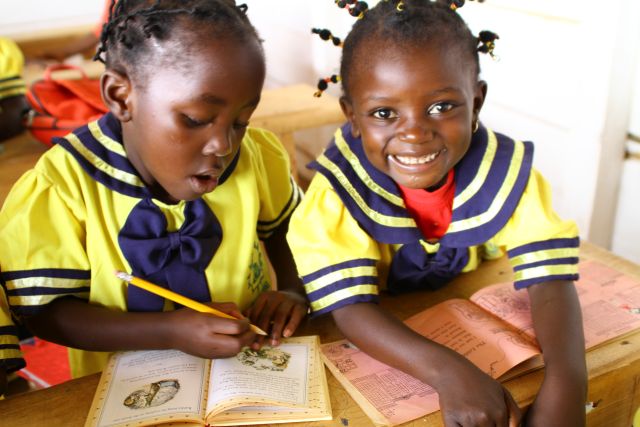Education is a uniquely positive force with a wide-ranging impact on society and human development. It has neither always nor everywhere been used to free people from the bonds of ignorance.
No country has succeeded without educating its people; education is key to sustaining growth and reducing poverty. Too many people are still excluded from education because of poverty, poor policies and corruption, over 125million children are still out of school- the majority girls and women.
Education is everybody’s human right, it means that no girl, no matter how poor, how degenerated her country is should be excluded from school. There is no acceptable excuse for denying her the opportunities to develop to her fullest potential.
On 31st July 2003, the National Assembly enacted the Child Rights Act (CRA) in line with the international child Rights convention. In every action concerning a child, whether undertaken by an individual, public or private body, instructions or service, court of law or administrative or legislative authority, the best interest of the child shall be the paramount consideration. Education must be higher on the agenda of everyone: governments, donors agencies, NGOs, trade unions, the private sector, foundations etc. Achieving quality education for all especially girls and women can no longer be the responsibility of the Ministries of Education alone, the same maximum support given for the combating of issues like the COVID 19, HIV/AIDS should be extended to education of the girl child. Train a girl child and you have trained a whole family.
There have been debates about whether primary, secondary or tertiary education should be the priority when considering funding for education. Such debate tends to distract us from the essential issue for young girls; their right to a basic education which if they miss out on means they have missed out on secondary education and all the good that goes with it.
Among the many long-term benefits of educating girls are:
Enhanced economic development.
Education for the next generation.
The multiplier effect.
Healthier families.
Fewer maternal deaths.
Although the international community has committed itself to girls’ education as a human rights issue with the benefits of investing in girls’ education been clear, it has yet to become a priority for development investments.
NGOs play both a mobilizing role and a monitoring function to ensure access for communities to both educational institutions and processes. The rural communities, underdeveloped regions, women and adolescent girls are mostly affected which is why Participatory Development Alternatives(PDA) with support from Actionaid Nigeria(AAN) has been and will always be committed to ensuring that every girl child is granted access to education, we call on donors agencies, sponsors and partners to partner with PDA to ensure Access to Education for every Girl Child.


